
 National anthem of France
National anthem of France France is a large country in western Europe. France is known for its proud history and rich culture. The capital is Paris.
France is a large country in western Europe. France is known for its proud history and rich culture. The capital is Paris.
France is the third largest country in Europe. Only Russia and Ukraine are bigger. France is sometimes called “the Hexagon” because it has a six-sided shape.
- Neighboring countries: Belgium, Luxembourg, Germany, Switzerland, Italy, Spain, Andorra
- Bodies of water: the North Sea lies to the north; the Mediterranean Sea lies to the south; the Atlantic Ocean lies to the west
- Mountains: Pyrenees at the southwest border; Jura in the west; Alps in southeast
- Highest peak: Mont Blanc—15,771 feet (4,807 meters) high
- Major rivers: Seine, Loire, Rhine, Rhône
- Major cities: Paris, Marseille, Lyon, Toulouse, Montpellier, Strasbourg




The north of France has cool to cold winters, warm summers, and moderate rainfall. On the Mediterranean coast winters are sunny, and it rarely rains in summer.
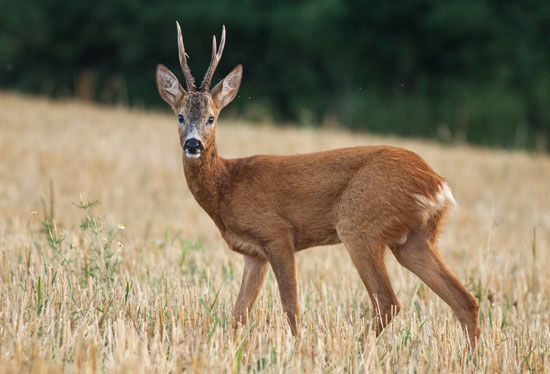
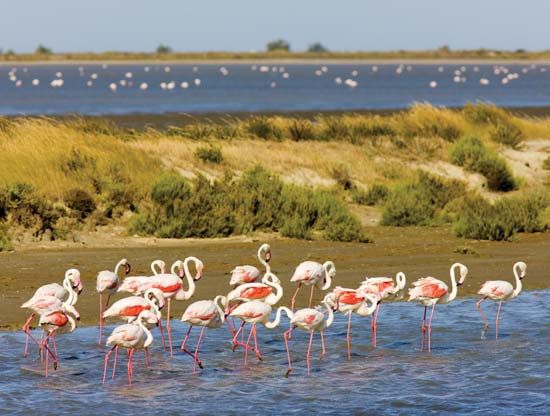 Forests cover about one-third of the land. Pine, fir, ash, oak, beech, maple, chestnut, and olive trees are common. The country’s wild animals and birds include foxes, beavers, wildcats, deer, wild pigs, hawks, and storks. Some birds—including flamingos, Egyptian vultures, and European bee-eaters—spend the warm months in southern France and migrate to Africa for the winter.
Forests cover about one-third of the land. Pine, fir, ash, oak, beech, maple, chestnut, and olive trees are common. The country’s wild animals and birds include foxes, beavers, wildcats, deer, wild pigs, hawks, and storks. Some birds—including flamingos, Egyptian vultures, and European bee-eaters—spend the warm months in southern France and migrate to Africa for the winter.
 Most of the people are French. The French language is one of the world’s most widely spoken languages. The population also includes small groups of North Africans and other Europeans. The Basque people live in southern France. Roman Catholicism is the main religion in France. Other religious groups include Muslims, Protestants, Buddhists, and Jews.
Most of the people are French. The French language is one of the world’s most widely spoken languages. The population also includes small groups of North Africans and other Europeans. The Basque people live in southern France. Roman Catholicism is the main religion in France. Other religious groups include Muslims, Protestants, Buddhists, and Jews.
 French literature, architecture, visual art, music, fashion, and food are famous throughout the world. Claude Monet, Henri Matisse, and Marc Chagall are well-known French artists.
French literature, architecture, visual art, music, fashion, and food are famous throughout the world. Claude Monet, Henri Matisse, and Marc Chagall are well-known French artists.
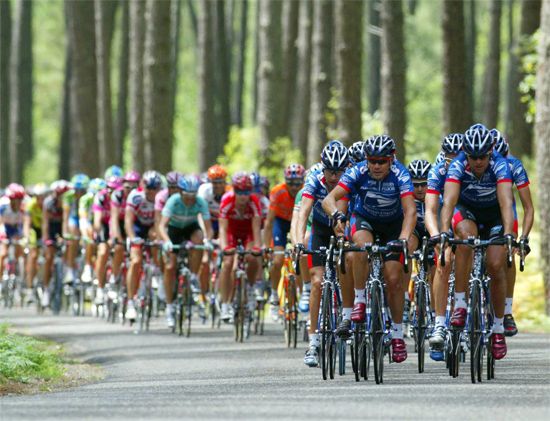 The most important yearly sporting event in France is the Tour de France. For three weeks in July, the world’s best riders compete in the bicycle race. The race covers some 2,235 miles (3,600 kilometers) in France and neighboring countries. The Tour de France was established in 1903 and has deep cultural roots in the country.
The most important yearly sporting event in France is the Tour de France. For three weeks in July, the world’s best riders compete in the bicycle race. The race covers some 2,235 miles (3,600 kilometers) in France and neighboring countries. The Tour de France was established in 1903 and has deep cultural roots in the country.
France was the second country to host the modern Olympic Games. Those Games took place in 1900. France hosted again in 1924, 1968, 1992, and 2024.
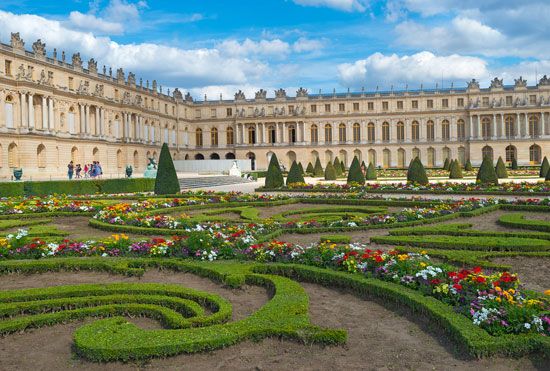
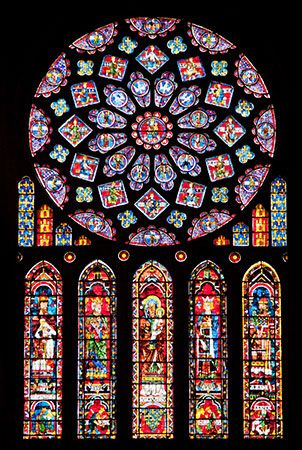 France is a favorite destination for tourists. It offers many historical and cultural sites as well as opportunities for outdoor recreation. The capital city, Paris, has such world-famous attractions as the Eiffel Tower, the Louvre, the Cathedral of Notre-Dame, and the Georges Pompidou Centre. Cities such as Reims, Amiens, and Chartres have centuries-old cathedrals that draw many visitors. In addition, the palaces in Versailles, Vincennes, and Fontainebleau rank among the world’s leading architectural masterpieces. The Mediterranean coast and the mountain regions have popular summer and winter resorts.
France is a favorite destination for tourists. It offers many historical and cultural sites as well as opportunities for outdoor recreation. The capital city, Paris, has such world-famous attractions as the Eiffel Tower, the Louvre, the Cathedral of Notre-Dame, and the Georges Pompidou Centre. Cities such as Reims, Amiens, and Chartres have centuries-old cathedrals that draw many visitors. In addition, the palaces in Versailles, Vincennes, and Fontainebleau rank among the world’s leading architectural masterpieces. The Mediterranean coast and the mountain regions have popular summer and winter resorts.
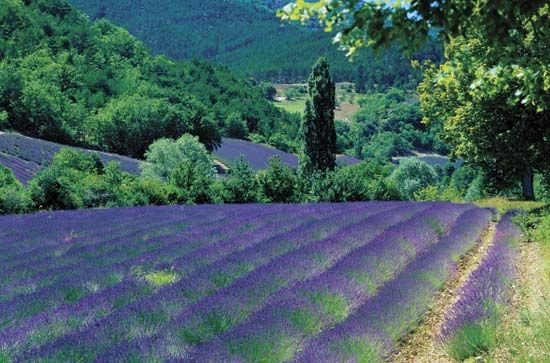
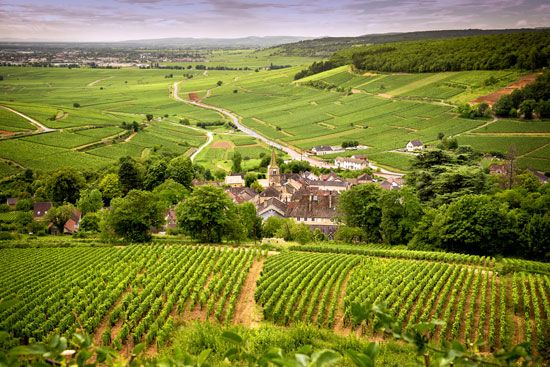
 France is one of the major economic powers of the world. Its manufacturing, agriculture, and services sectors of the economy are some of the largest in Europe and in the world.
France is one of the major economic powers of the world. Its manufacturing, agriculture, and services sectors of the economy are some of the largest in Europe and in the world.
- Agriculture: largest agricultural producer in Europe. Crops include wheat, barley, root vegetables, apples. France grows more than 4 million tons of grapes and is one of the world’s largest producers of wine. It is also well known for its cheeses.
- Manufacturing: machinery, cars, aerospace products, steel, chemicals, textiles
- Services: trade, tourism, banking, retailing, health care
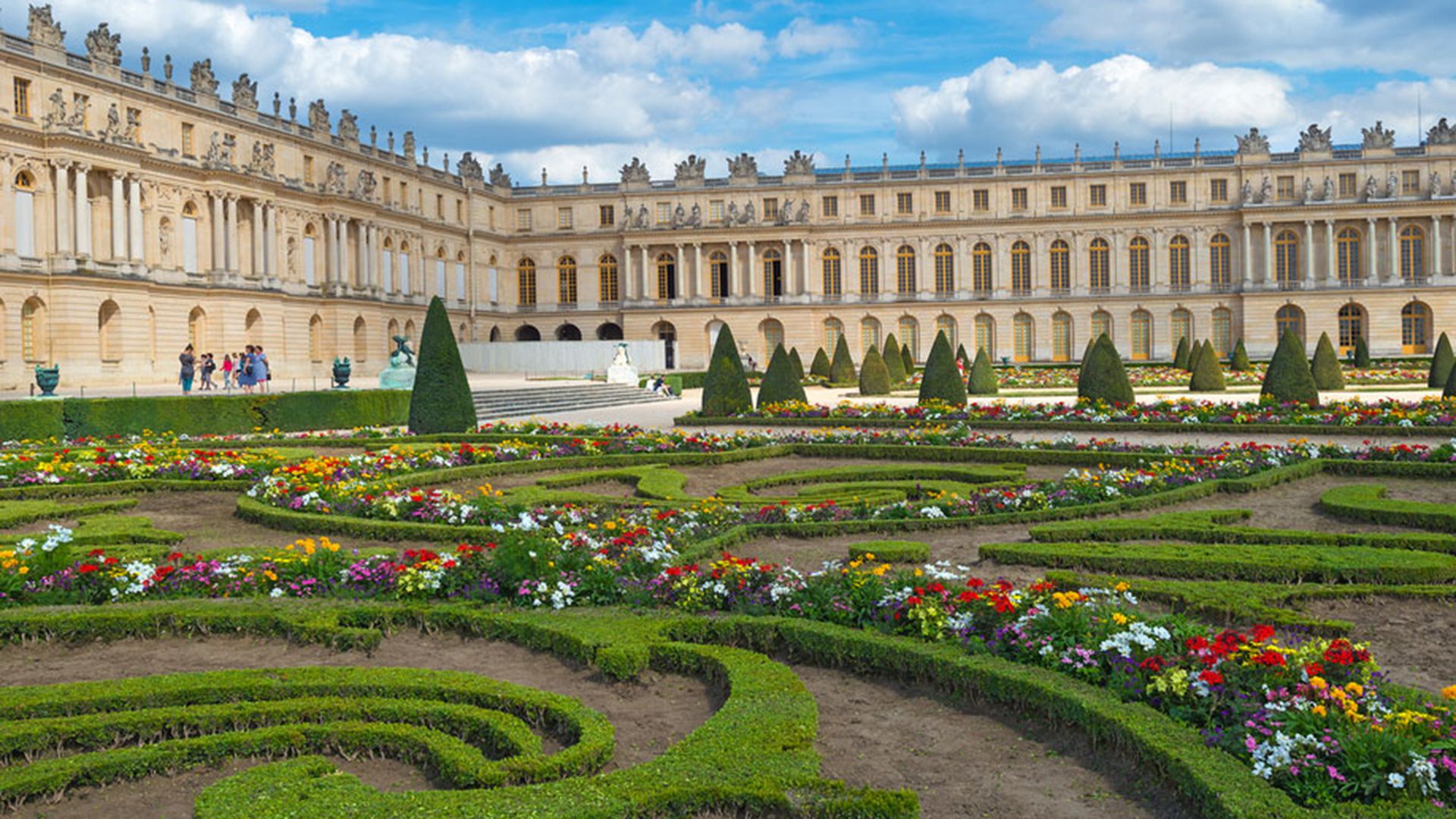
 As the Roman Empire weakened, German tribes invaded Gaul. The Franks were the strongest of those tribes, and they gave France its name. The greatest Frankish ruler was Charlemagne, who came to power in 768 ce. By the early 800s Charlemagne’s empire covered most of western Europe. When Charlemagne died, however, the empire was divided into three parts. After 843 the western section became known as the kingdom of France.
As the Roman Empire weakened, German tribes invaded Gaul. The Franks were the strongest of those tribes, and they gave France its name. The greatest Frankish ruler was Charlemagne, who came to power in 768 ce. By the early 800s Charlemagne’s empire covered most of western Europe. When Charlemagne died, however, the empire was divided into three parts. After 843 the western section became known as the kingdom of France.
Wars over Land and Religion
In 1066 the French duke of Normandy conquered England. Because of that connection to France, English kings later claimed parts of France for themselves. This led to many battles between the two countries.
One particularly difficult period was the Hundred Years’ War, which began in 1337. France was close to defeat when a peasant girl named Joan of Arc led the French army to victory. By the end of the war in 1453, the English had lost nearly all of their land in France.
During the 1500s Protestantism spread across Roman Catholic France. Wars broke out between Protestants (known as Huguenots) and Roman Catholics. Peace came in 1598 when King Henry IV signed the Edict of Nantes, which granted Protestants some rights.
French Revolution and Napoleon
During the 1600s France became the greatest power in Europe. Louis XIV, who reigned from 1643 to 1715, raised the power of the king to new heights. In the 1700s, however, France lost a series of costly foreign wars. At home, political disorder and public anger resulted in the French Revolution in 1789. This uprising by the French people led to the end of the French monarchy. After the revolution France became a republic.
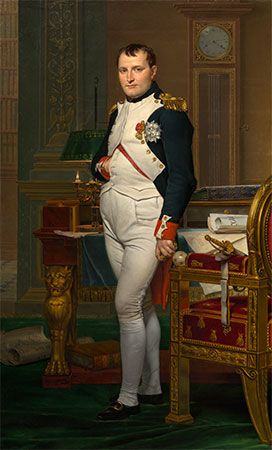 After a period of weak government, France fell into the hands of General Napoleon Bonaparte in 1799. He named himself emperor of France in 1804. Napoleon set out to conquer Europe. He was finally defeated in 1815. Afterward the monarchy was restored, but it fell in 1870. France once again became a republic.
After a period of weak government, France fell into the hands of General Napoleon Bonaparte in 1799. He named himself emperor of France in 1804. Napoleon set out to conquer Europe. He was finally defeated in 1815. Afterward the monarchy was restored, but it fell in 1870. France once again became a republic.
World Wars
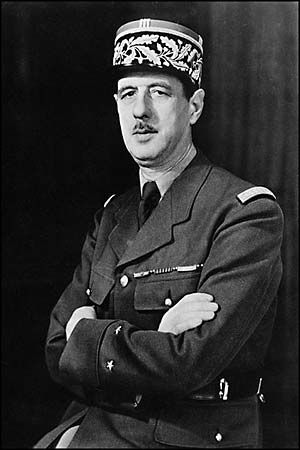 Germany invaded France in 1914, at the beginning of World War I. France and its allies narrowly defeated Germany during that war. Less than 30 years later, however, Germany again invaded France, during World War II. Part of the French army, called the Free French, escaped to England under General Charles de Gaulle. Free French, U.S., and British forces drove the Germans out of France in 1944.
Germany invaded France in 1914, at the beginning of World War I. France and its allies narrowly defeated Germany during that war. Less than 30 years later, however, Germany again invaded France, during World War II. Part of the French army, called the Free French, escaped to England under General Charles de Gaulle. Free French, U.S., and British forces drove the Germans out of France in 1944.
Postwar France
In the 1950s and 1960s France lost two colonies—Vietnam and Algeria— that it had controlled for many years. Nevertheless, France’s political and economic power grew. In 1993, France became one of the original members of the European Union (EU).

The country faced another problem in 2015 when it suffered two major terrorist attacks. More than 140 people were killed and hundreds of others were injured in the attacks. On July 14, 2016, another major attack took place in the southeastern city of Nice.
The president at the time, François Hollande, announced in December 2016 that he would not seek reelection. That made him the first French president since World War II to decline to run for reelection.
The first round of voting in the presidential election took place in April 2017. The candidates of the main political parties were eliminated in that round of voting. Instead, the two candidates to advance to a runoff were Emmanuel Macron and Marine Le Pen. Macron had never before held an elected office. He did not belong to an established political party. Rather, he was the leader of a new political movement called En Marche! (On the Move!). Le Pen was the leader of the National Front party. Le Pen wanted to limit France’s role in the EU and to severely restrict immigration. Macron wanted France to have closer ties to the rest of the EU. In the runoff election on May 7, Macron easily won. At age 39, he was the youngest person elected president of France. In 2018 and 2019, Macron faced many protests from people who were unhappy with his plans to raise certain taxes.
 Also in 2019, a fire damaged a large part of the cathedral of Notre-Dame in Paris. The cathedral is one of the most famous buildings in Europe, and it has stood for more than 850 years. Macron vowed to rebuild the damaged sections of the church. Restoration began almost immediately. It is set to reopen on December 8, 2024.
Also in 2019, a fire damaged a large part of the cathedral of Notre-Dame in Paris. The cathedral is one of the most famous buildings in Europe, and it has stood for more than 850 years. Macron vowed to rebuild the damaged sections of the church. Restoration began almost immediately. It is set to reopen on December 8, 2024.
Macron was reelected in 2022, but he continued to face protests. One of the biggest issues revolved around the age of retirement. Macron wanted to change the law so that workers had to wait until age 64 in order to retire. People were so upset that it became the largest French protest movement of the 2000s.
Protesters attacked several railways right before the start of the Olympic Games in 2024. However, the Games were held without any other major incidents. They took place mostly in the capital city of Paris.




